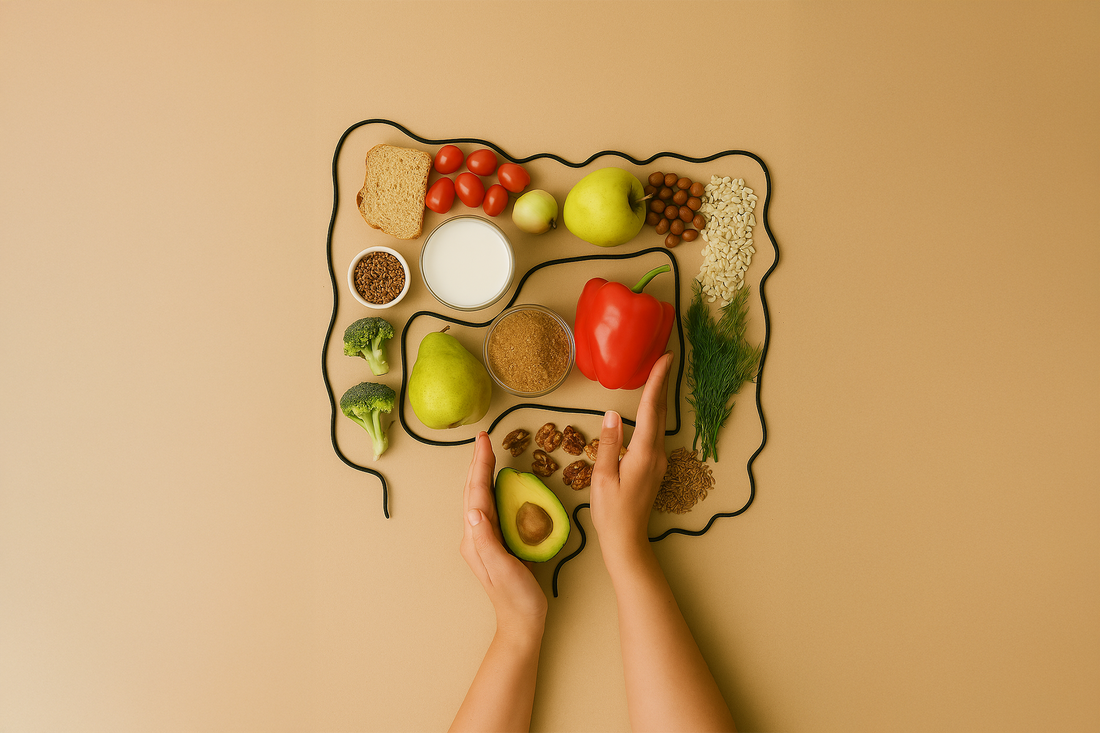
Gut Health Once A Second Nature, Now Another Cheat Code Variant
A Revival of Tradition
Turmeric milk before bed. Ginger shots at the first sign of a cold. Fenugreek water on an empty stomach. These age-old practices, passed down by grandmothers and elders, are experiencing a renaissance. Once dismissed as "home remedies," they are now finding their place in the modern wellness conversation, backed by science and rebranded as bio-hacks, lifestyle trends, and anti-inflammatory superfoods.
Smoothies. Supergreens. Turmeric shots. These “new-age” wellness rituals? They’re simply old traditions dressed up in contemporary marketing.
And all these practices circle back to one thing: the home of your gut microbiome.
Rediscovering Gut Health in the Age of Information
Not long ago, terms like "gut microbiome," "bloating," or "inflammation" weren’t even a part of our vocabulary. In many Indian households, bloating was misinterpreted as just “getting fat” and often dismissed without much understanding of the root causes. It wasn’t until nutritionists and wellness influencers began breaking down these issues on social media that people started connecting the dots: that so many of our chronic symptoms, from fatigue and acne to weight gain and poor digestion, have one common link. Gut health.
What was once intuitive knowledge got lost in the rush of modern life. But as the West began embracing ancient practices, many of us realised we didn’t need to reinvent a new system; we just had to go back to our roots.
Tradition Meets Science: The Gut-Wisdom of the Old
India stands at 75% of the world’s turmeric consumption. That’s not a coincidence. Indian ancestors knew the power of spices long before lab reports confirmed it. Turmeric's curcumin compound, for instance, is a natural anti-inflammatory that supports gut lining integrity. Ginger, a digestive powerhouse, helps with gut health and calms inflammation. And fenugreek, soaked overnight and consumed on an empty stomach, balances blood sugar and soothes the digestive tract.
We’ve been sipping jeera water, kanji, and fermented rice long before probiotics became a trend. These weren’t hacks, they were habits. Everyday wellness is rooted in seasonality, balance, and the simple act of listening to one’s body. Which is why knowing how much Protein your body needs matters.
The Underdog - Protein’s Role in the Gut Home:
While we’ve rightly embraced turmeric and ginger, there’s one element that’s often forgotten in conversations around gut health: protein.
Protein is more than a macronutrient for gym bros. It plays a central role in repairing and maintaining the gut lining. Amino acids from protein, especially glutamine, help with Anti-inflammatory diseases in the stomach.
To add more in simpler terms, protein is like that one friend who brings snacks and cleans up after. It helps your body whip up the enzymes needed to break down food (a.k.a. digestive teamwork), and even makes sure your gut bacteria get fed and happy. Basically, protein doesn’t just flex for your muscles, it rolls up its sleeves and does behind-the-scenes gut magic too.
Choosing Smart: Your Protein choice Matters
The quality of your protein matters just as much as the quantity. Many traditional whey or synthetic protein powders are packed with artificial ingredients that may disrupt the gut, especially if you’re lactose-intolerant or sensitive to additives.
That’s where clean, plant-based protein steps in as a hero. Derived from peas, rice, or seeds, plant proteins are gentler on the digestive system and naturally rich in fibre and phytonutrients. Some blends go a step further, adding digestive enzymes or probiotics to further support gut health and nutrient absorption.
It’s no surprise that more people are making the switch, not only for sustainability but for how good it makes their body feel.
The Gut-Skin Link: You Are What You Digest
Ever notice your skin breaking out after a period of stress eating or irregular meals? That’s your gut talking.
Skin issues like acne, dullness, or even premature ageing can often be traced back to imbalances in the gut. When your digestive system isn’t functioning at it’s best, toxins build up, nutrients aren’t absorbed fully, and inflammation spreads, then end up on your face.
Rather than investing in just serums and spot treatments, supporting your gut may be the inside-out skincare ritual you’ve been missing.
Simple Steps to Rekindle Gut Health
You don’t need to overhaul your life or rework your whole pantry (although your mum would like that). Start with small, intentional shifts that combine the best of tradition and science:
-
Morning Rituals with Purpose:
-
Begin your day with warm water and turmeric, lemon, or fenugreek.
-
Add a probiotic-rich food like kanji or curd.
-
Smart Protein Intake:
-
Choose a clean plant protein or supergreens.
-
Blend it into smoothies with banana, ginger, oats, and flaxseeds.
-
Balanced, Whole Meals:
-
Combine fibre, healthy fats, and protein in every plate.
-
Eat slowly and mindfully.
-
Hydration & Herbs:
-
Sip on herbal teas like peppermint or fennel.
-
Avoid excess caffeine or processed drinks.
-
Listen to Your Gut:
-
Track how food affects your mood, energy, and skin.
-
Don’t ignore signs like bloating, fatigue, or skin flare-ups.
Conclusion: Going Forward by Looking Back
Ancient practices weren’t outdated, in-fact they were ahead of their time. And today, as science validates what tradition always knew, we have a rare opportunity: to blend the best of both worlds.
Gut health isn’t a fleeting trend, it’s the foundation of holistic wellness. From your immune system and digestion to your mood and skin, everything begins in the gut.
So go back to those grandmother-approved rituals. Choose clean, nourishing foods avoiding junk as much as possible. Because your gut deserves better, and in-turn you get to perform better.